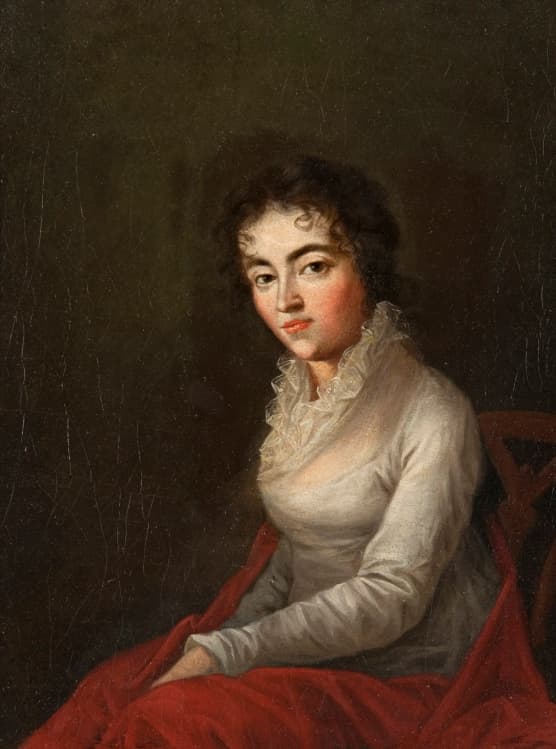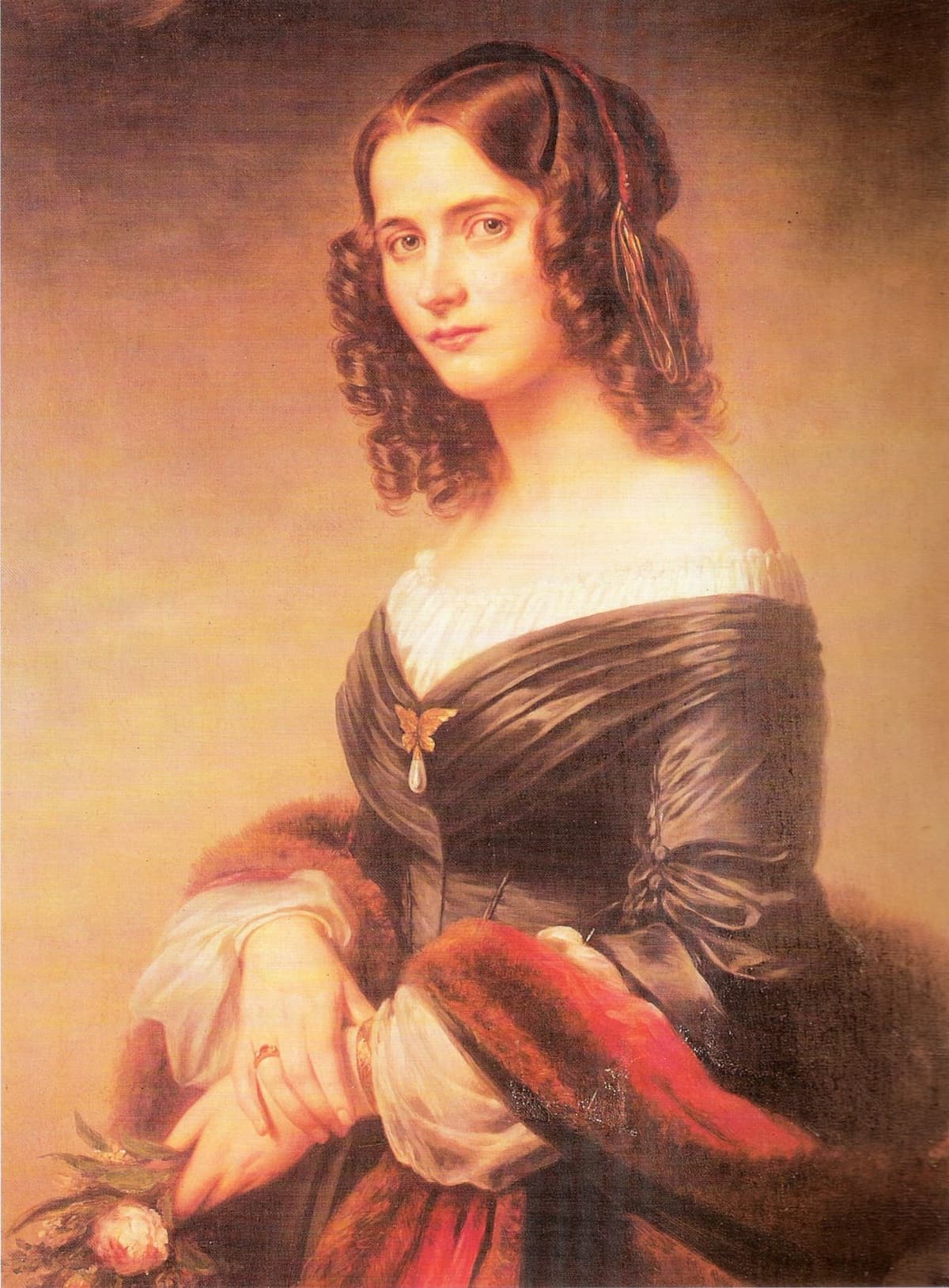by Emily E. Hogstad
However, historians tend to stop following the story once the composer dies. But have you ever wondered what happened to the composer’s families after their deaths? How did their widows keep their composer-husband’s music alive? And in eras before social safety nets, how did they survive…especially if they had kids?
Here’s what happened to three of classical music’s most famous widows after their husbands died:
Anna Magdalena Bach, 1701-1760. Married Bach in 1721.

Anna Magdalena Bach © www.bachueberbach.de
Anna Magdalena had just turned twenty when she married the widower J.S. Bach. In doing so, she became a very young stepmother to four surviving children, aged thirteen, eleven, seven, and three, all from his first marriage. Soon she began having biological children of her own. She would have thirteen in all, with seven dying very young.
When her husband died, Anna Magdalena Bach was forty-eight years old. She had been an accomplished professional singer in her youth, but she was in no position to restart her performing career…not to mention, she still had several minor children to raise!
Unfortunately, Bach hadn’t left enough money for them all to live on. She was left a portion of his estate, but J.S. Bach’s children, including his adult sons who were pursuing careers of their own, also got a cut of the assets, too. And alarmingly, the city of Leipzig only granted Anna Magdalena custody of her children on the condition that she not marry again, guaranteeing their future destitution.
Her stepson C.P.E. Bach was apparently the only child who stepped in to provide financial assistance, but it did not keep her from sinking into extreme poverty. She was evicted from her home and needed assistance from the city government to survive. She died a decade after her husband and was buried in an unmarked pauper’s grave.
Constanze Mozart, 1762-1842. Married Mozart in 1782.

Constanze Mozart
Mozart’s wife Constanze was twenty-nine years old when her husband fell ill and died, leaving her with two children, debts, and few prospects. She roused herself from her grief to line up support for herself, seeking out a pension from the emperor and organizing memorial concerts. She was a singer, and she put her musical abilities to use when she started publishing her dead husband’s works. Eventually, she grew to become a wealthy woman.
Six years after Wolfgang’s death, she took in a tenant named Georg Nikolaus von Nissen, a diplomat, and a writer. Romance blossomed. Rather scandalously, they moved in together the following year. They married in 1809, with von Nissen taking on the role of stepfather and helping Constanze with the administration and promotion of Mozart’s legacy.
Nissen’s last project was a Mozart biography, with which Constanze assisted. Nissen died before it was finished, but she made sure it was published, and it became an important source of Mozart lore. She lived in Salzburg along with two of her sisters, also widowed, and died in 1842 at the age of eighty.
Cécile Mendelssohn Bartholdy, 1817-1853. Married Mendelssohn in 1837.

Cécile Mendelssohn Bartholdy
Twenty-seven-year-old composer Felix Mendelssohn met nineteen-year-old singer Cécile Jeanrenaud in 1836 while he was conducting the Cecilia Choir in Frankfurt. They got engaged that September and were married in March 1837, and had five children together in Leipzig.
Unfortunately, tragedy hit the family in May 1847, when Felix’s beloved sister Fanny died suddenly and without warning of a stroke. Felix was deeply affected by her death, and he died in November 1847, also from a stroke. Cécile was only thirty.
Clara Schumann went to be with her and wrote: “She received me with the tenderness of a sister, wept in silence, and was calm and composed as ever. She thanked me for all the love and devotion I had shown to her Felix, grieved for me that I should have to mourn so faithful a friend, and spoke of the love with which Felix always had regarded me. Long we spoke of him; it comforted her, and she was loath for me to depart. She was most unpretentious in her sorrow, gentle, and resigned to live for the care and education of her children. She said God would help her, and surely her boys would have the inheritance of some of their father’s genius. There could not be a more worthy memory of him than the well-balanced, strong, and tender heart of this mourning widow.”
She kept her two daughters with her and sent her three sons to be raised by her in-laws in Berlin. Her son Felix died in 1851, compounding her grief, and she herself died of tuberculosis in 1853, leaving behind several children aged eight to fifteen.